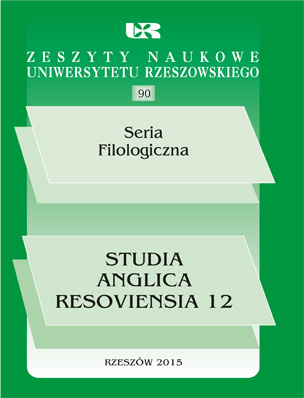Exploring „The Dark Tower”: Stephen King’s Postmodern Epic
DOI:
https://doi.org/10.15584/sar.2015.12.12Keywords:
Stephen King, The Dark Tower series, metafiction, intrinsic intertextuality, extrinsic intertextuality, multiple-worlds theoryAbstract
This paper focuses on the postmodernist conceits of Stephen King’s postmodern epic, „The Dark Tower” series. In his septimology, King examines the very foundation of literary fiction as well as criticism by combining metafiction, intertextuality and the contemporary scientific multiple-worlds theory into a postmodernist chaos of information. King essentially presents a universal model which is composed of purely symbolic composites that encompass the four basic pillars of creating a written text, i.e. the author, objective reality, fictional universe, and language as a medium of written discourse. Furthermore, by dividing intertextuality into its intrinsic and extrinsic form, in combination with the multiple-worlds theory, King renders the opposition of high vs. low culture literature inert. He does so through the element of colliding fictional universes, therefore an act he positions in parallel with the flattening of the worlds of high and low culture, thus creating a vision of culture which functions on the principles of equality.Downloads
Download data is not yet available.
Downloads
Published
2015-12-15
How to Cite
Buday, M. (2015). Exploring „The Dark Tower”: Stephen King’s Postmodern Epic. Studia Anglica Resoviensia, 12(12), 135–145. https://doi.org/10.15584/sar.2015.12.12
Issue
Section
Articles
License
Copyright (c) 2015 Studia Anglica Resoviensia

This work is licensed under a Creative Commons Attribution-NonCommercial 4.0 International License.

